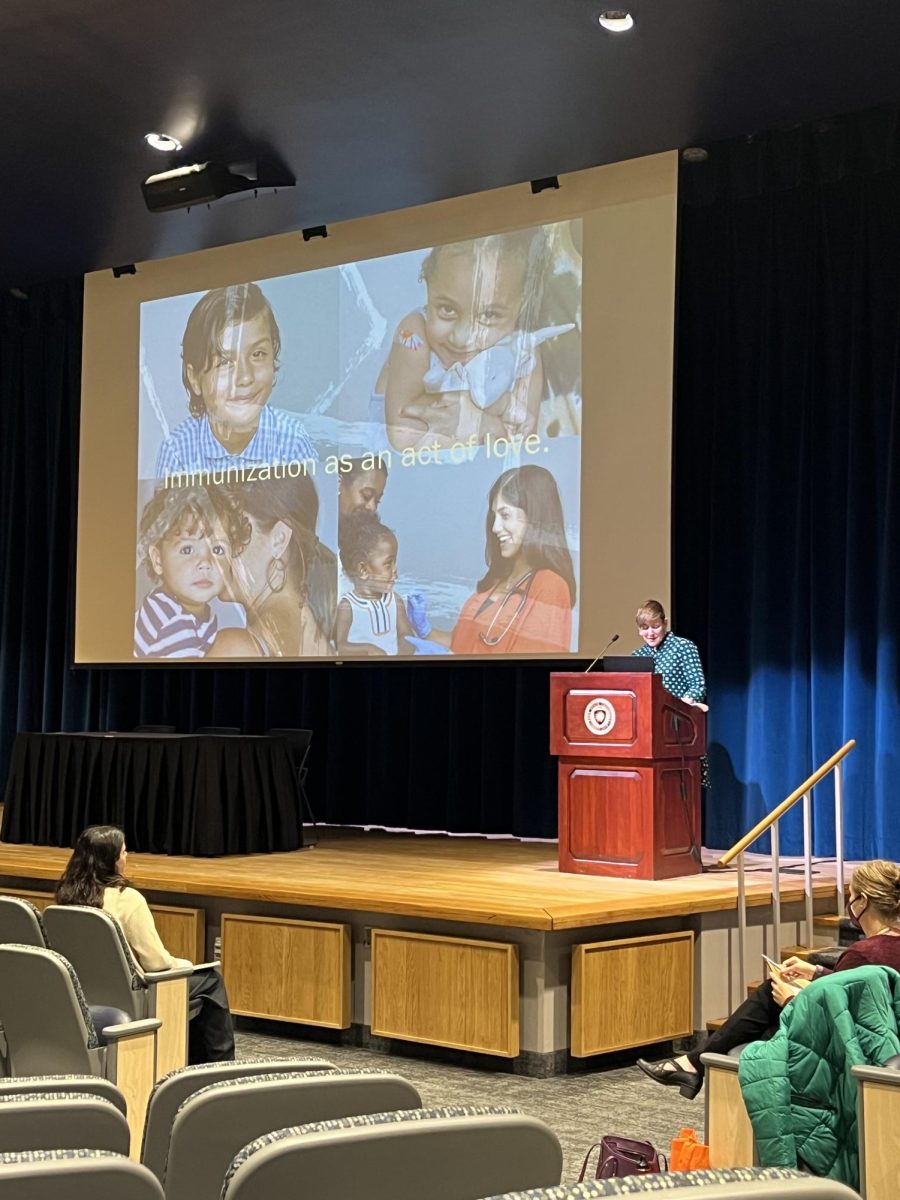The university welcomed Jennifer Reich, a professor of sociology at the University of Colorado-Denver and founding executive director of Boost Oregon Nadine Gartner for a Vaccine Symposium in the KIVA Auditorium.
The conference Tuesday discussed vaccine hesitancy, and the virtual and in-person audience received professional insight from both speakers who showcased expertise in the area.
The Healthy Communities Research Institute, the University Research Council and the College of Public Health at Kent State University hosted this conference.
Reich highlighted prominent information and statistics throughout her presentation. One of her main points introduced the struggle between personal freedoms and community responsibility to participate in public health.
She also highlighted the common trend that individuals have a sense of responsibility for their health.
“We live on an everyday messaging that tells us to…take a personal responsibility for your health,” she said. “And this kind of rhetoric assumes that you have the ability to fully mitigate illness through hard work.”
She refuted this by stating that illnesses are well beyond our control. In her opinion, environmental aspects, genetic makeup and other factors reveal there is no root cause to sickness, indicating that vaccinations can diminish risks.
She mentioned that parents are reminded their children’s health and wellness is in their hands. Regardless of the child’s outcome, it tends to fall back on the adult in charge.
“You’re personally responsible for your health and you’re personally responsible for your children and their outcomes,” she said. “What we’ve really done is translated a series of public health and community programs into a range of consumer decisions, and vaccines then become a kind of lifestyle choice rather than a public health campaign.”
She also emphasized there are roughly twice as many vaccines as a generation ago.
Reich included a statistic, noting that 74% of adults admit they are confident or somewhat confident of the flu vaccine’s safety. Yet, this number decreases to 57% when they were asked the same question about the COVID-19 vaccine.
She later said the partisan divide that spawned in 2020 is continuing to grow, and that evidence shows the biggest political party opposed to the COVID-19 vaccination is the Republican party.
When the conference transitioned over to Gartner, she asserted that anti-vaccination sources online are dangerous and provide personal anecdotes that do not support real facts and statistics.
“I fear that surrounding ourselves only with people who think like us would exacerbate the divide and increase the already alarming rate of unvaccinated children,” Gartner said.
Due to this conflict, in July of 2015, she and four other parents introduced the nonprofit organization Boost Oregon, with the core belief being that “every parent wants the best for their child,” according to Gartner.
The organization believes individuals’ decisions concerning health and wellness should be depicted through science and research.
Gartner wrapped up her talk with motivational interviewing, which helps with vaccination hesitancy. This process promotes behavior change by providing “facilitated dialogue” instead of overpowering expert advice when a patient and professional have a conversation.
As a whole, both Gartner and Reich believe that trust lies within the scientific experts.
“Reach out to a trusted medical provider, talk with someone who is going to listen to you and if someone is shutting you down about talking through your fears then find someone else to speak to,” Gartner said.
This meeting allowed the individuals watching to reflect on their vaccination decisions and leave with new insight on the subject.
“The opportunity to get folks in the room from different programs and different parts of campus and get students and faculty together is really important for thinking of paths forward,” Reich said.
Sarah Petrovich is a reporter. Contact her at [email protected].





